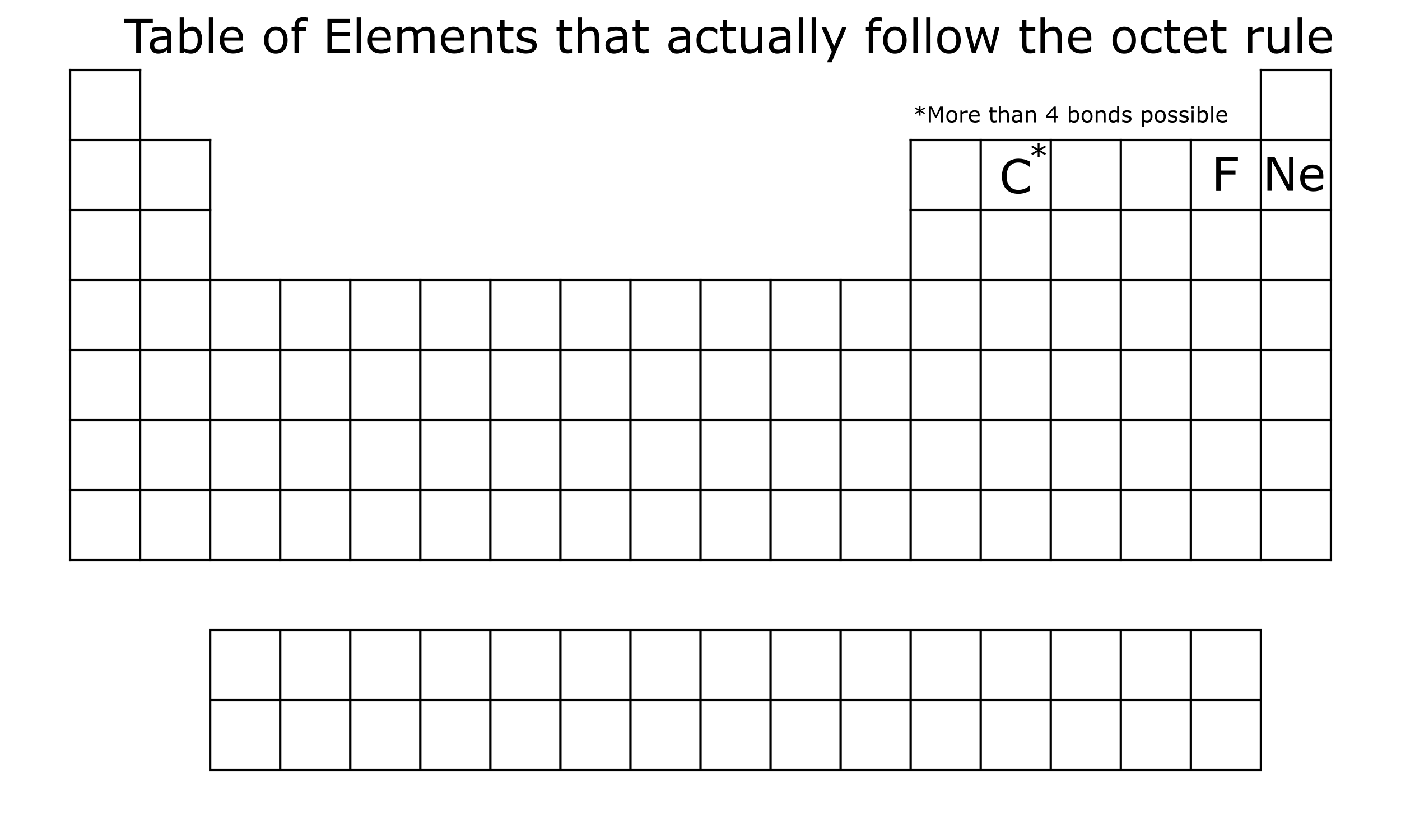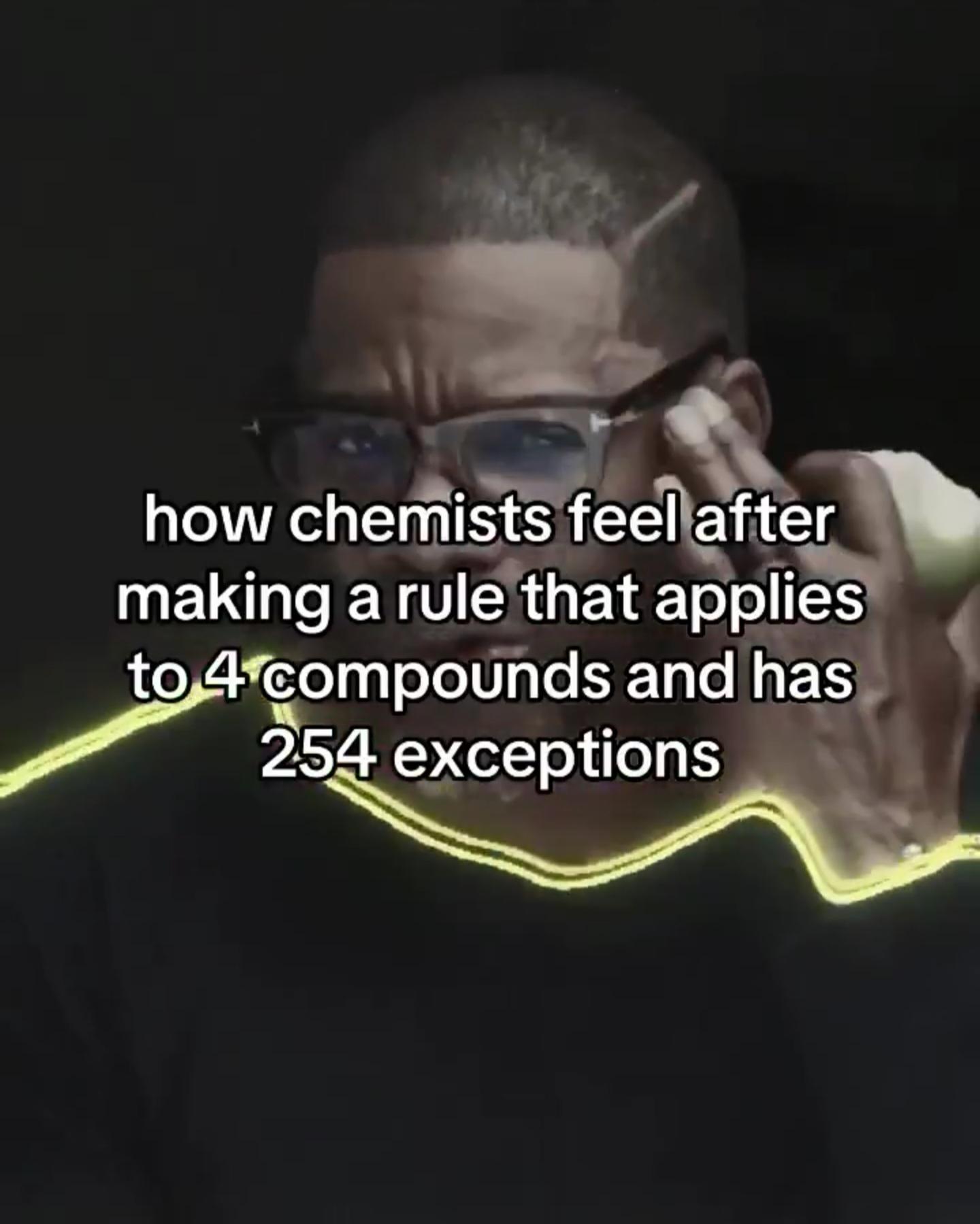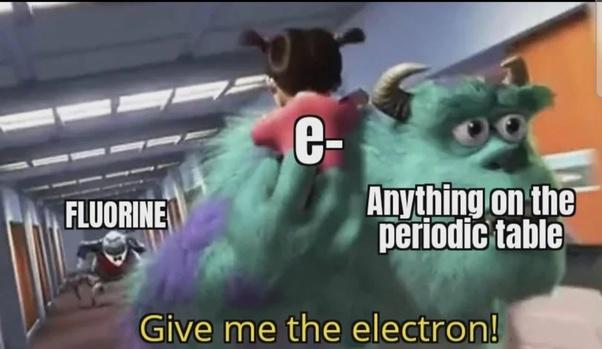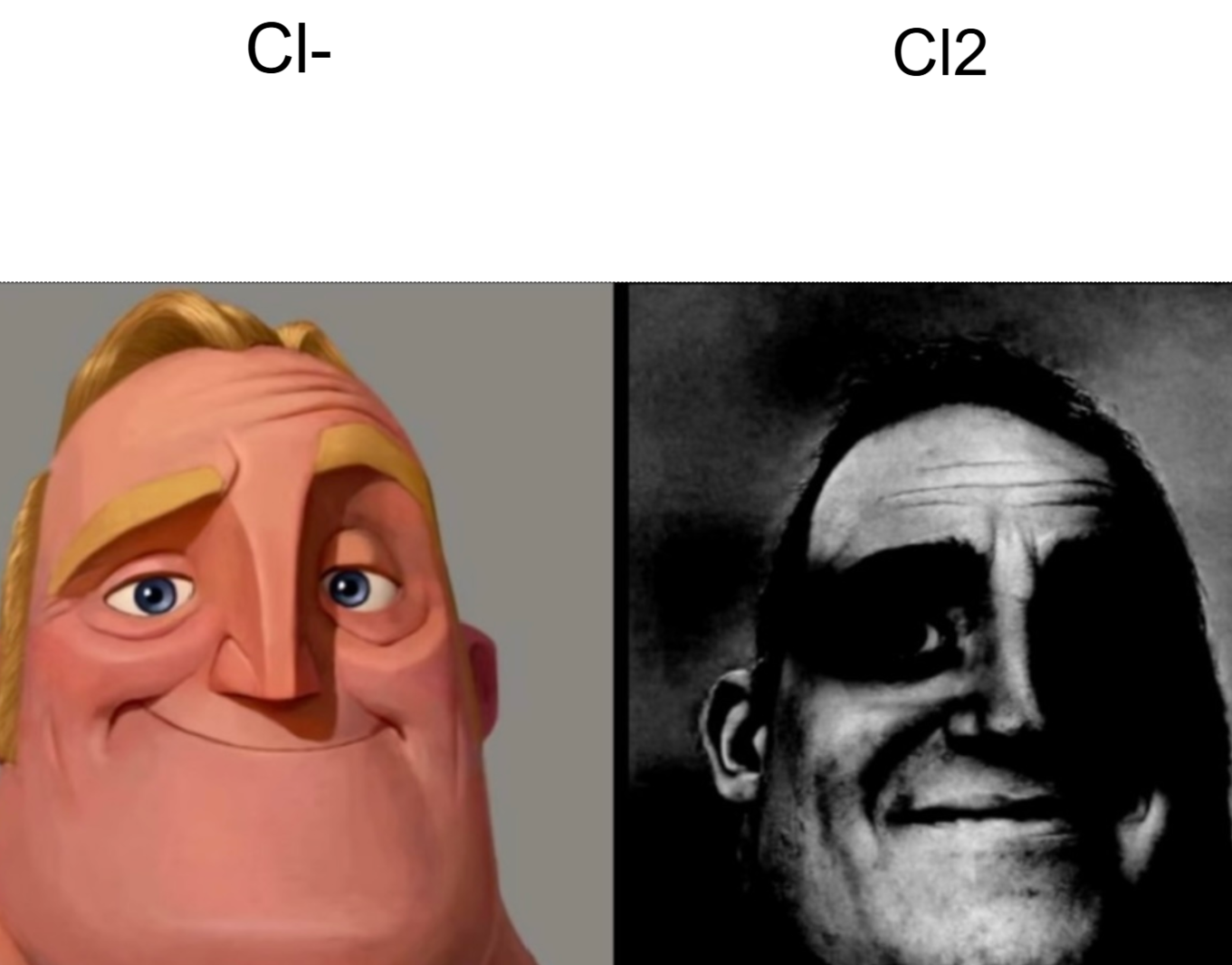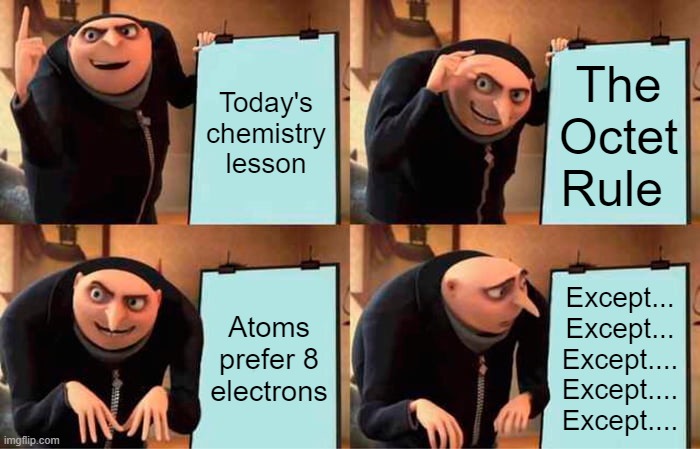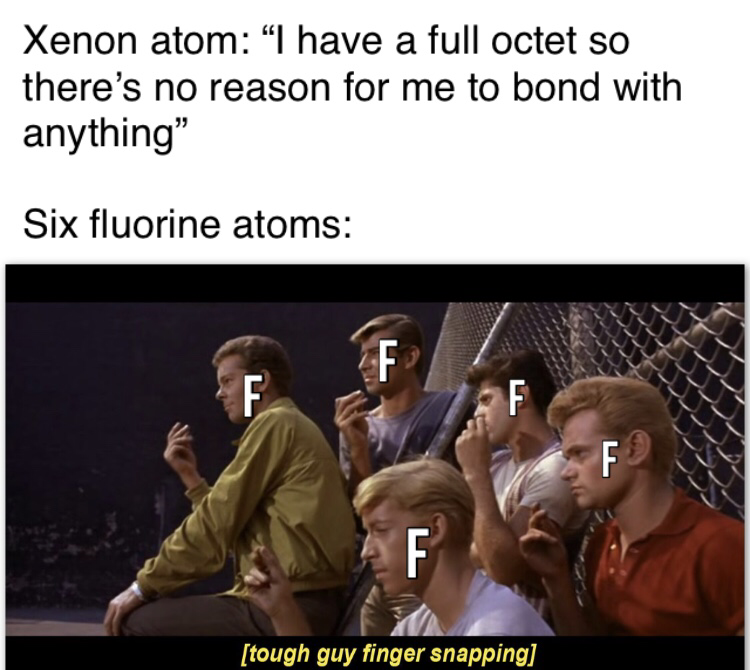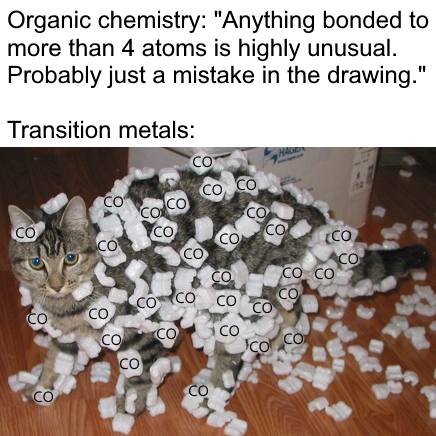Electron theft at its finest! That's basically the entire plot of ionic bonding—chlorine, the desperate electron hoarder with 7 valence electrons, just needs one more to complete its outer shell and achieve noble gas stability. Meanwhile, sodium's sitting there with a single valence electron, practically begging to be mugged. The chemical equivalent of a back-alley deal where sodium gets stability by emptying its pockets and chlorine gets that sweet, sweet octet completion. Chemistry isn't about sharing—it's about knowing when to take what you want.


 Academia
Academia
 Ai
Ai
 Astronomy
Astronomy
 Biology
Biology
 Chemistry
Chemistry
 Climate
Climate
 Conspiracy
Conspiracy
 Earth-science
Earth-science
 Engineering
Engineering
 Evolution
Evolution
 Geology
Geology



